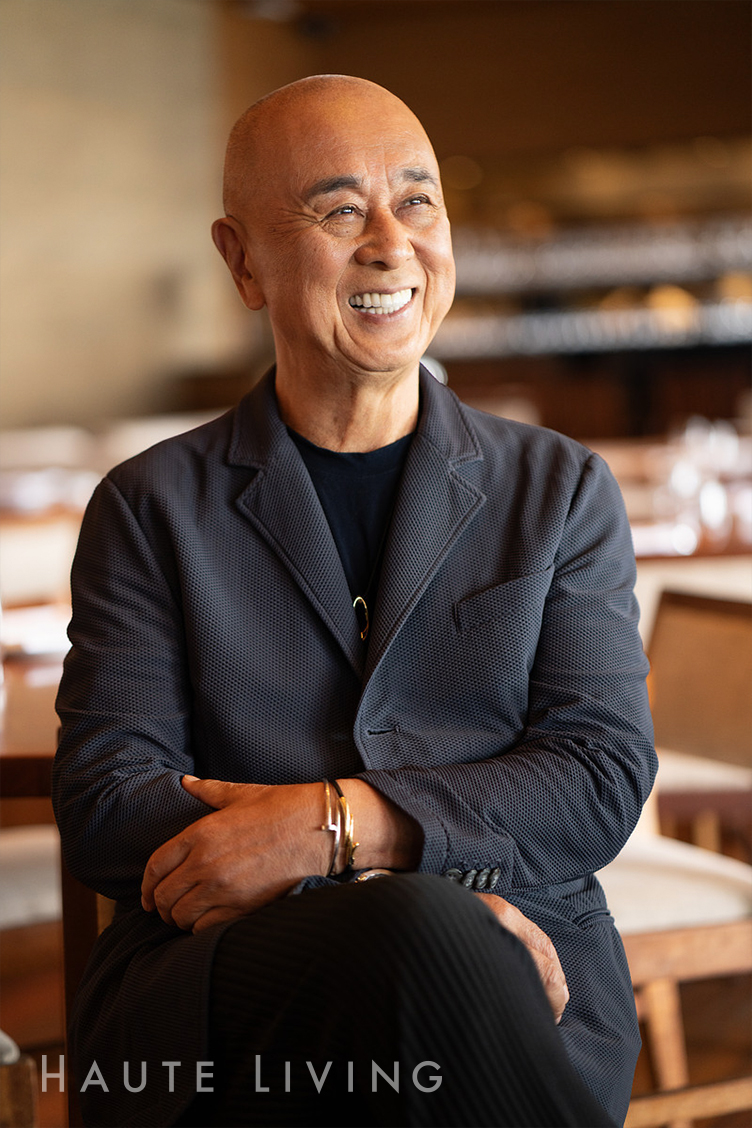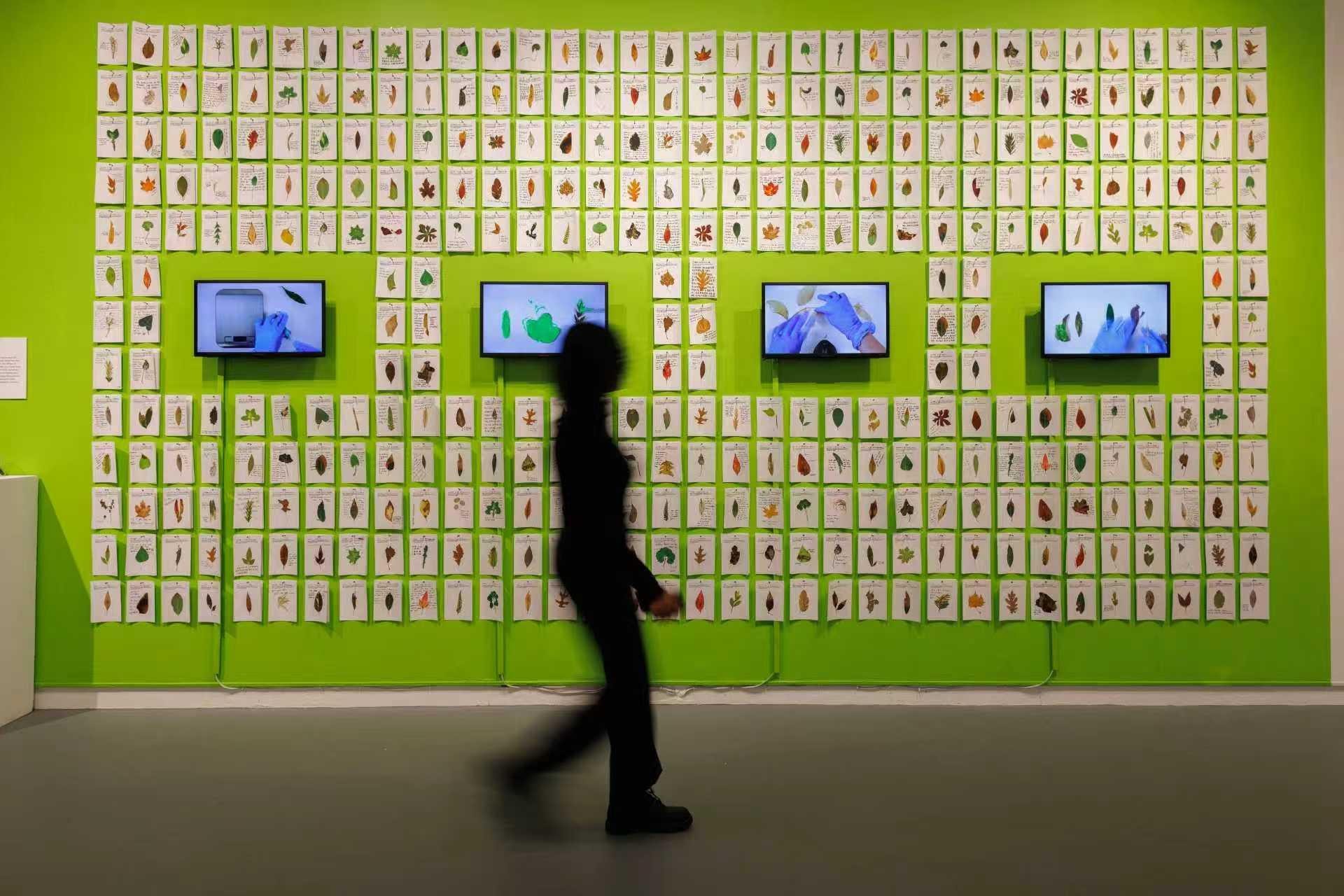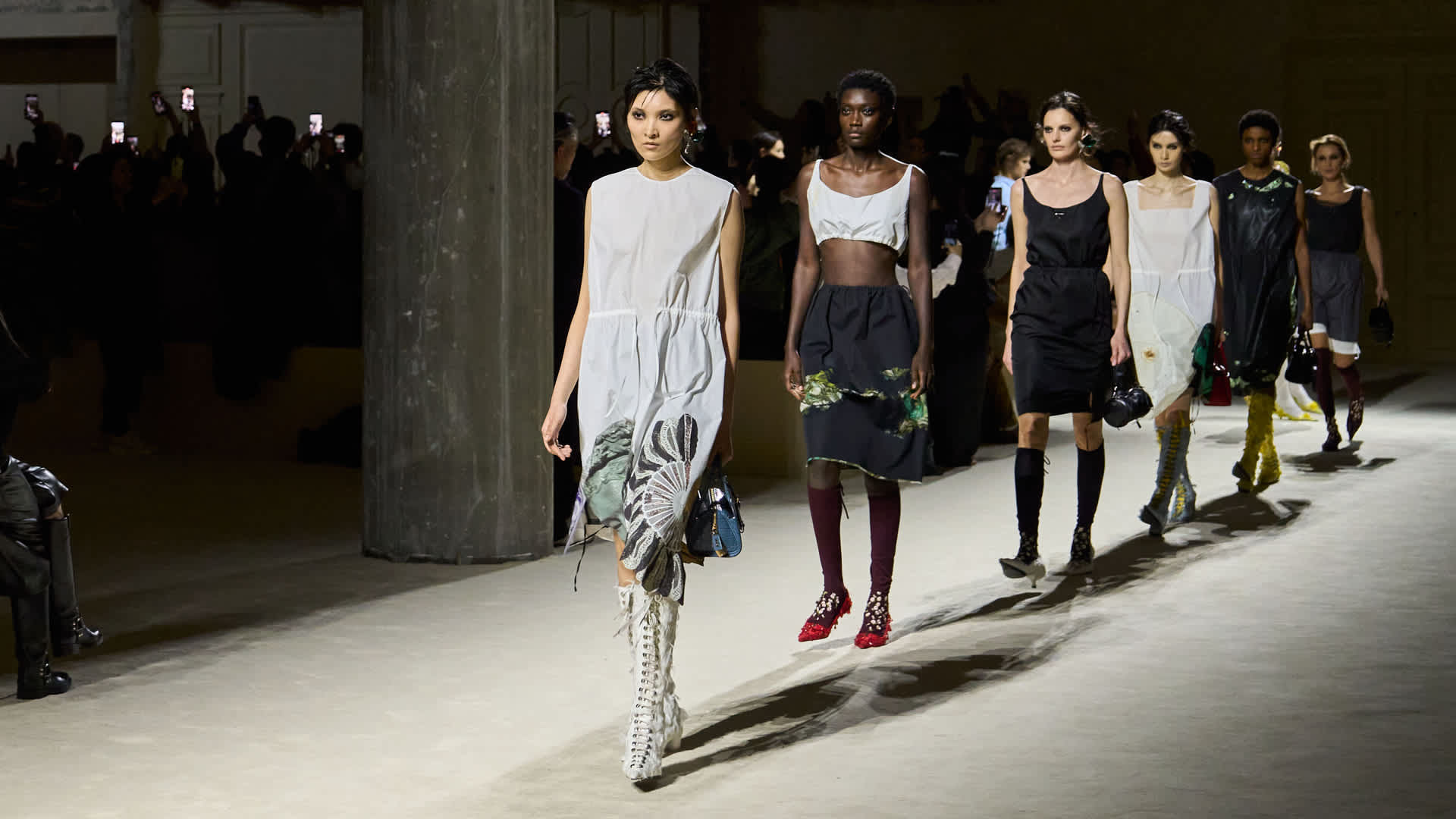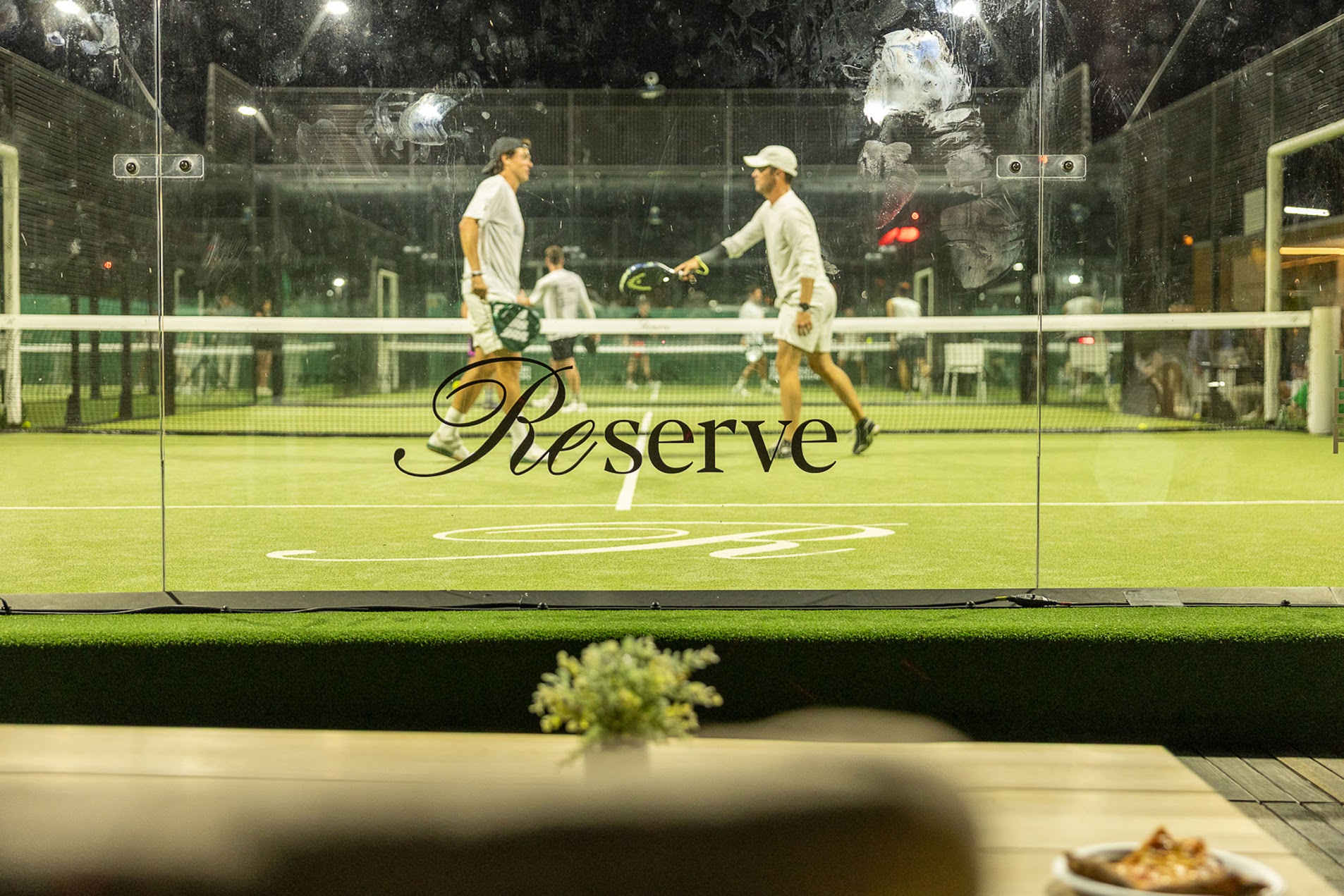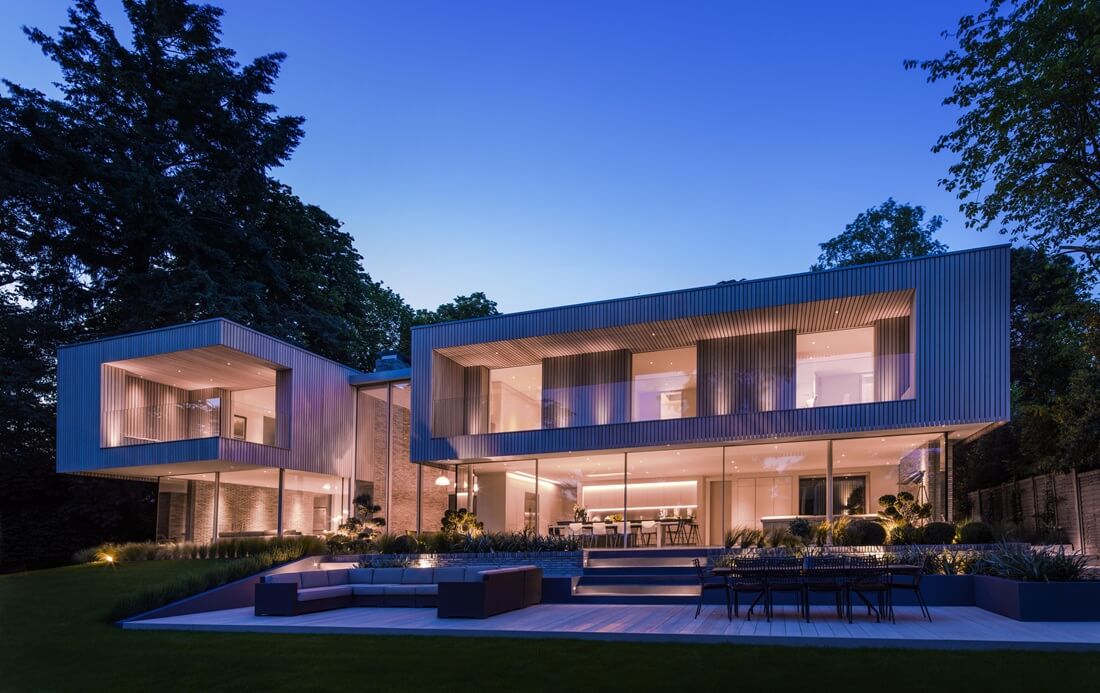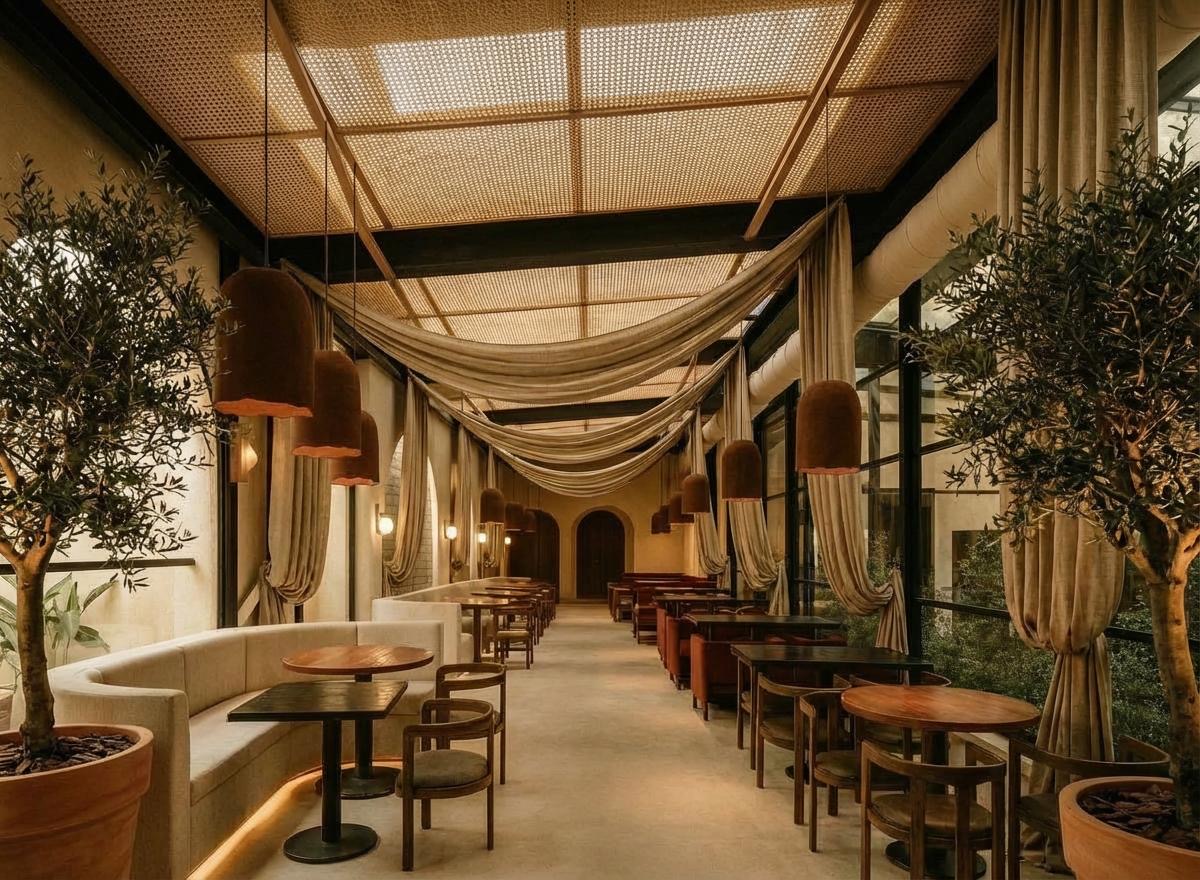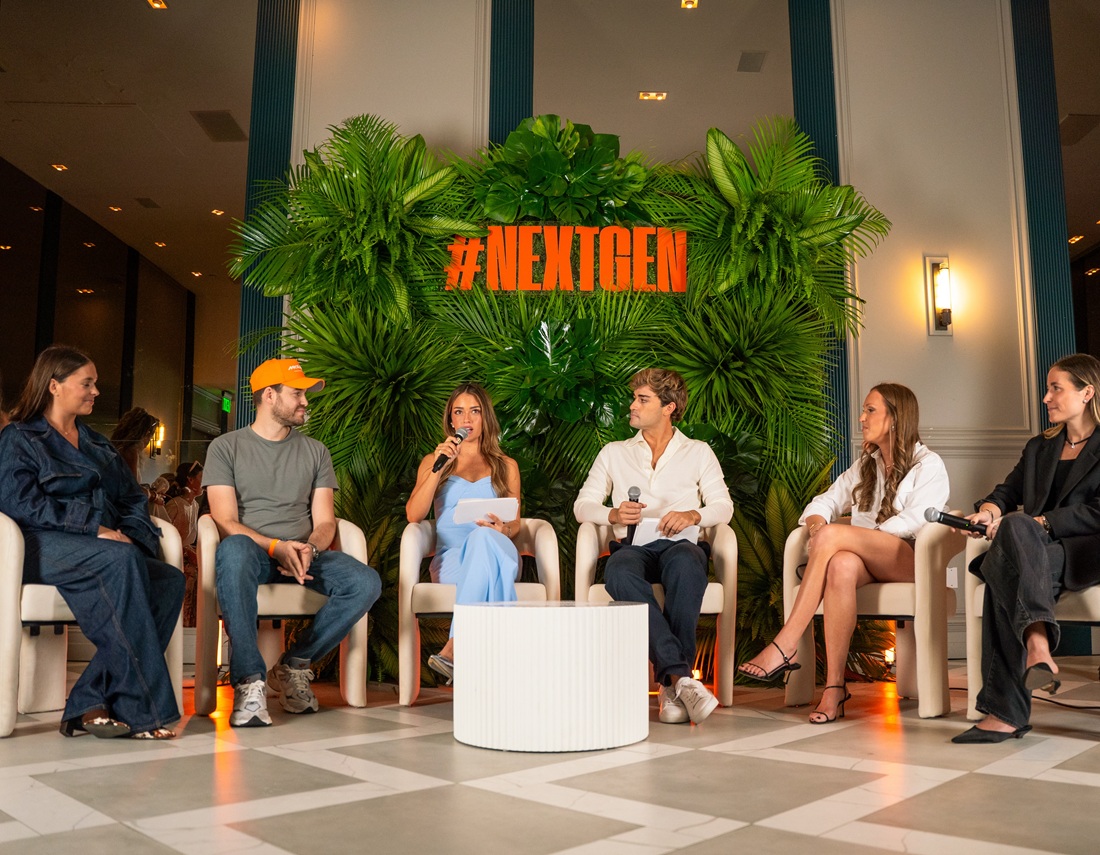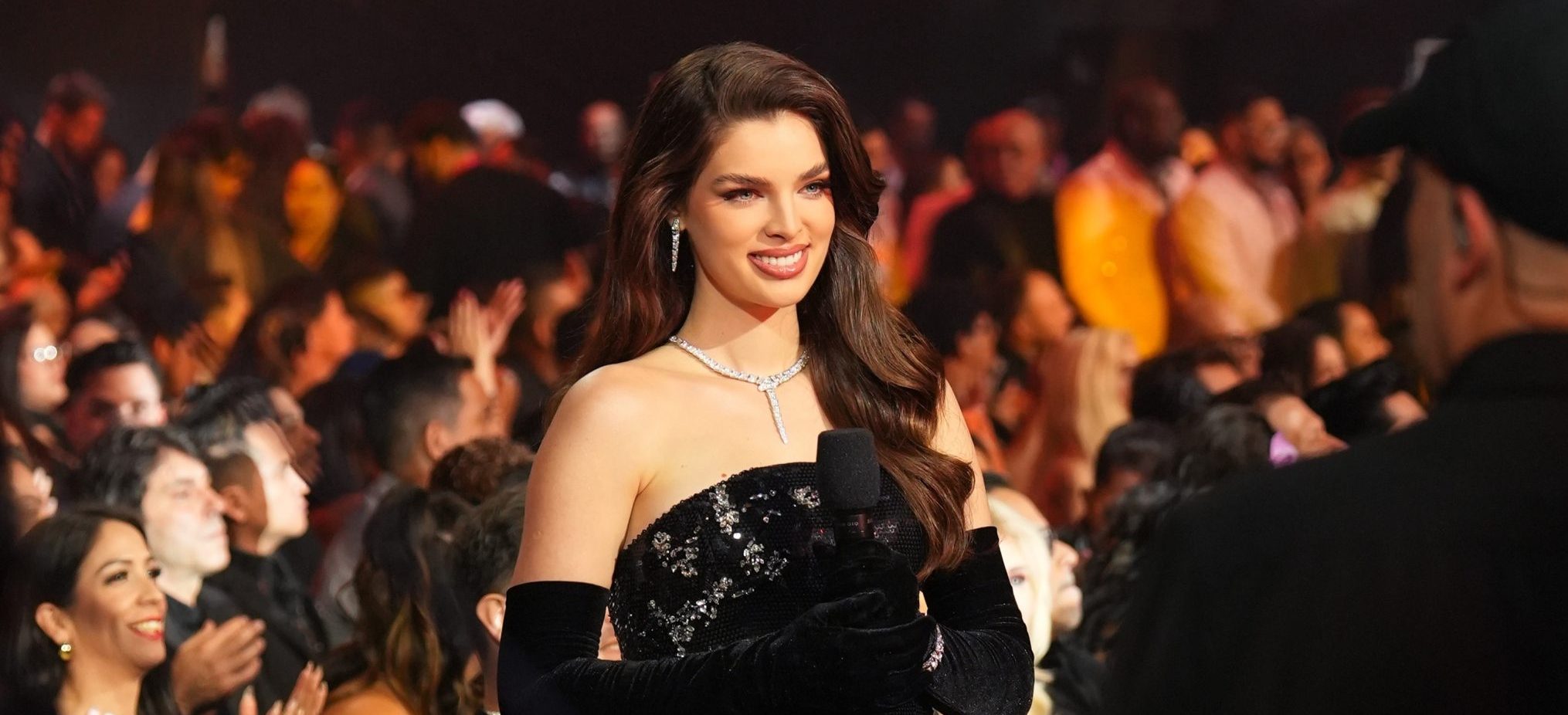How Nobu Matsuhisa Is Celebrating 30 Years Of Greatness
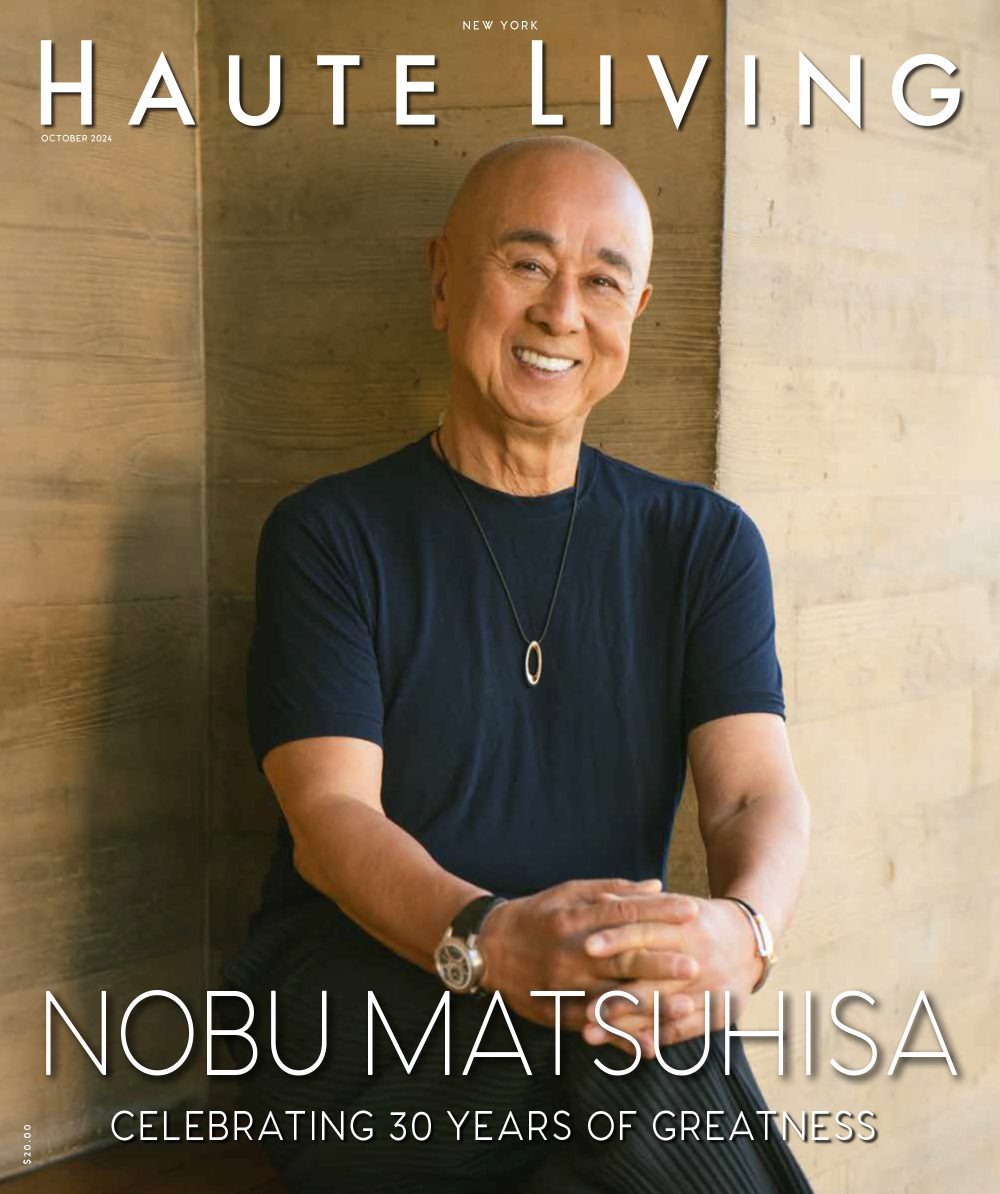
There aren’t many people in this world that would dare to tell the great Robert De Niro ‘no’ — but Nobuyuki “Nobu” Matsuhisa is among the dauntless few. But then, the Oscar winner made him an offer that he could refuse, it turns out.
The year was 1987. Matsuhisa had just opened his namesake eatery, Matsuhisa, in Beverly Hills as a follow-up act to his first venture in the City of Angels, a small, West L.A.-based six-seat sushi bar. The restaurant was an instant success, becoming a magnet for foodies and celebrities alike. De Niro, who fits the profile bill on both, rapidly became a regular, and after only a few A-list worthy meals, invited the chef to his New York headquarters, where he wooed him with a starry view of the future success they could have, should they go into business together.
But after four dreamy days in the Big Apple, Matsuhisa ultimately decided not to take a bite. “I said, ‘Bob, thank you so much for the opportunity, but I can’t take that step yet. My restaurant is still too new, I’m not ready to train people.’ It was kind of an excuse, because I needed to say something, but it was a true excuse; I needed to make Matsuhisa a success first. And Bob said he understood, which I have always been grateful for.”
And so, Matsuhisa went back to Los Angeles, where he had come, he says, “kind of like a runaway; L.A. was an escape.” But he was tired of running. He had already traversed the globe in the name of his career for a long time, and he was determined to stay firmly rooted in the States, where he had the possibility of building something real and successful. So, Matsuhisa kept his head down and worked hard, intent on making a name for himself in the right way.
It paid off, too, given that his first eatery not only exists, but is still an L.A. staple to this day.
And timing, as they say, truly is everything — because, nearly five years later, when De Niro doubled down and made his offer for a second time, Matsuhisa didn’t refuse.
“He asked me again,” Nobu-San (“San” being a suffix denoting respect) recalls from a private room in Nobu Malibu on a sunny summer day. “I was really surprised. He would always come to the restaurant and wouldn’t say too much when I’d cook for him. But one day, he called me and said, ‘Nobu, I’ve been watching you — maybe it’s time to come to New York.’ I was flattered that he was watching me, and I wasn’t sure [about going into business together], but I decided to do it, because I trusted him.”
It wasn’t the allure of Hollywood or the notoriety he might receive from partnering with a name like De Niro that ultimately swayed his decision, either. “It wasn’t about the big movies, or the famous people, but Bob the person,” he confides. “I had had business partnerships before in Peru and in Alaska, and they weren’t good — they didn’t last — and at first, I was worried — but this felt different. Bob set me at ease. And, in 1994, we opened Nobu New York (with restaurateur Drew Nieporent and producer Meir Teper).”
Needless to say, De Niro got his way. (I mean, doesn’t he always?) Not that anyone’s complaining — least of all Nobu-San, who can finally say that someone restored his faith in doing business in a trustworthy, respectful way. “After 30 years, with restaurants all over the world, I can still say that he is a good partner, and a good friend,” Matsuhisa shares. “He gave me an opportunity, my lucky chance.”
Given that this year marks the Nobu brand’s 30th anniversary, I’d say this was a venture that worked out pretty well (aka was a massive win) — and pretty luckily — for both.
From its inception until now, there are over 54 global Nobu restaurants and 14 Matsuhisa restaurants across five continents — all of which are uniform in their quality, presentation, and menu of “Nobu-style” traditional Japanese cuisine with Peruvian ingredients; 19 worldwide Nobu hotels (with 22 more to come, a venture that began in 2013 with Nobu Hotel Las Vegas at Caesars Palace); his own tequila line, Nobu Rare Blend by Qui; and both a clothing collection, Sushi Club, as well as his very own Nike sneaker, ‘Sushi Force 1’, both collaborations with designer Chris Stamp.
In fact, the Nobu name is so strong, that many don’t realize it’s his — that Nobu the man inspired Nobu the brand.
Not that he minds… much. “I’m so proud that people know the Nobu name, but I do find it funny that younger kids will say, ‘Oh no, Nobu isn’t a person, it’s a restaurant,’” he says with a smile. “The Nobu name is so huge now. I don’t want to tell them that I am Nobu, I don’t want people to think I have a big head. I don’t want to be like, do you know who I am? I try to make it into a joke sometimes. But really, I don’t mind [that they don’t know I’m a real person], because they keep coming. They make reservations and they spend money — which means more business.”
And isn’t that truly the goal? Though I can’t imagine the group getting more business than it currently has — it’s a lauded, world-renowned brand at this point, after all.
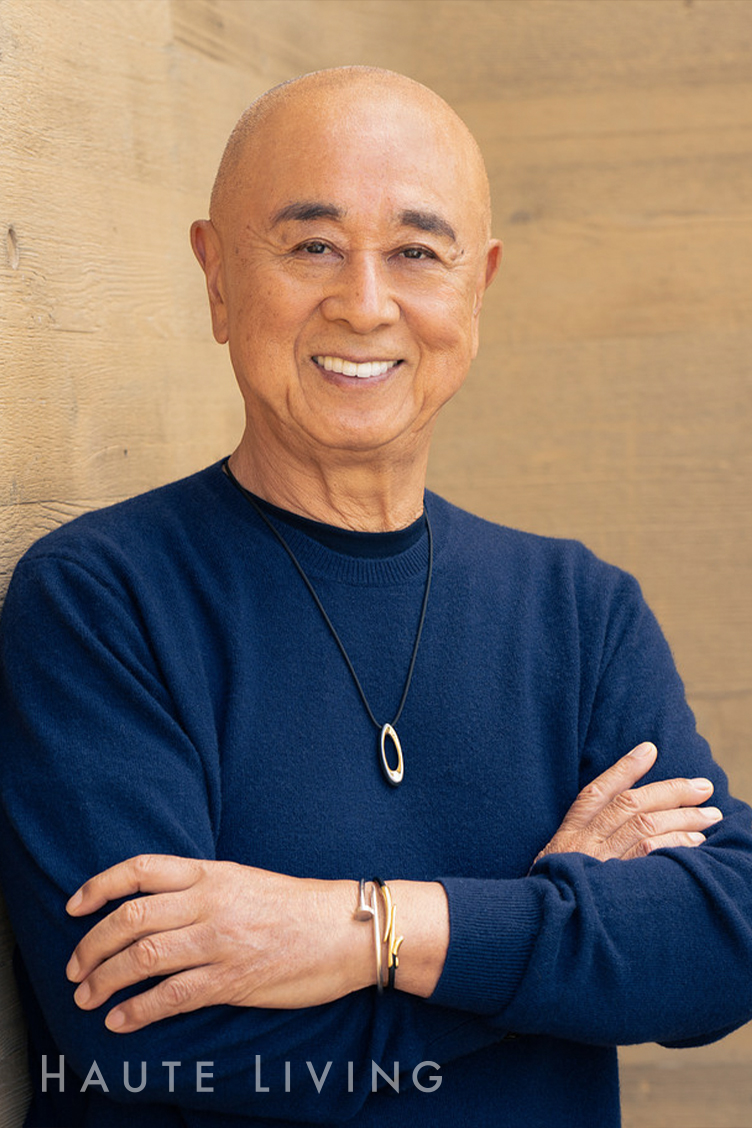
Yet, despite all his career has afforded him, Matsuhisa still remains humble — which is, perhaps, part of the reason he’s so successful.
Although he never flaunts his success — the opposite, in fact; humility is the name of his game — it is truly mind-boggling how much his life has changed. Even now, at 75 years old, he can’t help but to marvel at the path his life has taken. The glitz, glamour, and notoriety of the Nobu brand certainly wasn’t something he envisioned as a child growing up in Saitama, Japan, just northeast of Tokyo. He was just an eight-year-old kid when his father passed away in a motorcycle accident, the loss of which made his childhood particularly difficult. He dropped out of high school at 17 and moved to Tokyo, where he worked as a dishwasher. It was at the same restaurant, Matsue Sushi, a well-respected sushi bar, that he began the rigorous work of becoming a sushi master.
At just 24 years old, Nobu-San moved to Lima, Peru, and opened his first restaurant, Matsuei, in 1973, with the support of a sponsor he had met back in Tokyo. Although it was here that he developed his signature style — largely due to having to improvise because the ingredients he needed weren’t available in the South American country — things went sour with his business partner, and after three years, the restaurant closed.
“I opened a restaurant in Peru, and it was a success, but I fought with my partners, and it was finished. I was young,” he recalls.
He then spent a disappointing year in Argentina before returning to Japan. Matsuhisa admits, “I felt very uncomfortable there, and so decided to try one more challenge, and opened a restaurant in Anchorage, Alaska.”
It was this venture that almost broke him.
“Fifty days after we opened, an electrical fire started. The restaurant burned down, and I lost everything,” he remembers, quietly. “Money, my passion, everything I cared about. I made so many mistakes; I am not perfect.” And then he drops a bomb. “My mistakes were so big that I almost tried to kill myself.”
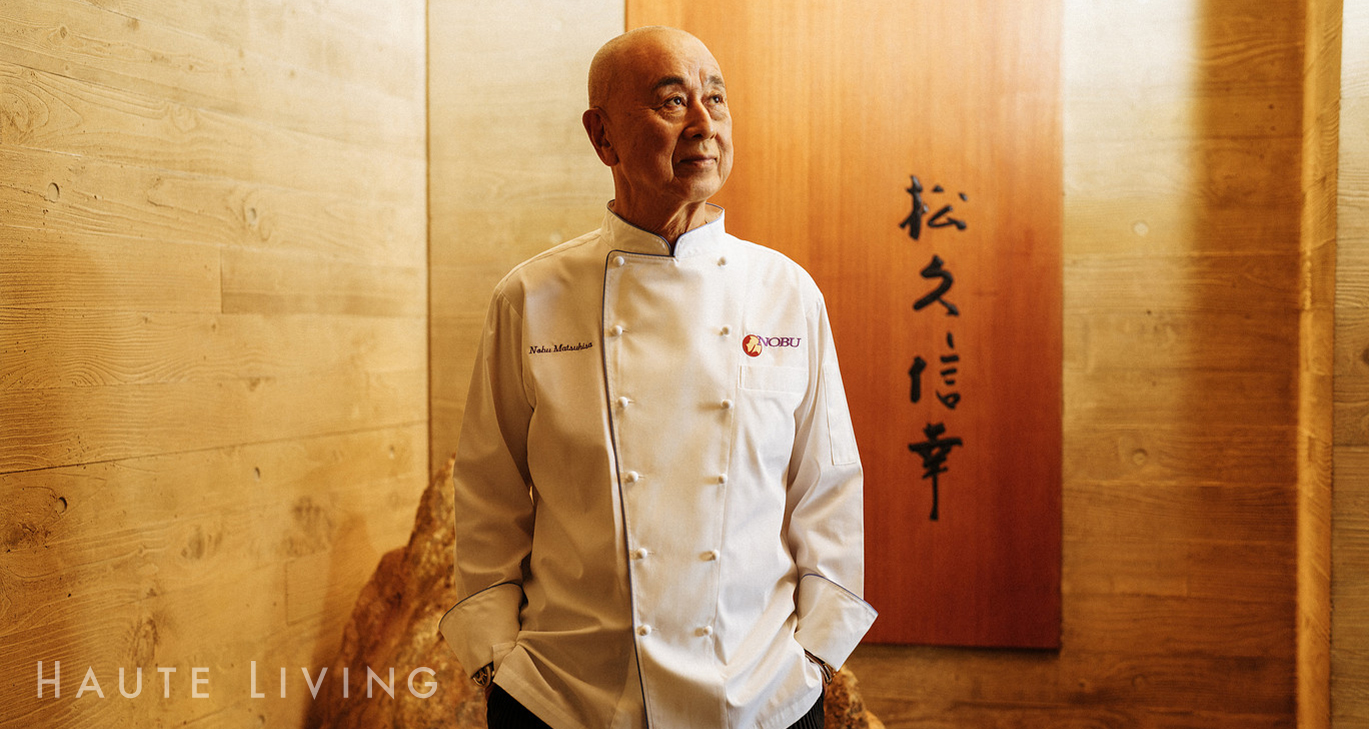
The morning Malibu sun is shining on his face; he looks beatific. He is at peace saying this, I assume, because of how far he has come since those days, pre-L.A., a 28-year-old man just trying to figure out his life and how to feed his family.
“For almost 10 days, I just constantly thought about this: How can I kill myself? It was one of the toughest moments of my life.”
But the important thing to note here is that he kept going. “In that moment I forgot that I had family. I was only thinking about myself. But I woke up. My kids were in front of me; they didn’t know how I was feeling. My two daughters were playing, and they had a fight. One started screaming, and I woke up. I knew that I had to be strong for my family.”
It was like a cold shower on his psyche, and a much-needed one, too. “I learned from this experience,” he shares, “and I changed my mind. I always thought, I have to make money, I have to be a success, I have to buy a house, buy a car. I had nothing at that time. Because I was not successful in Argentina, I was in a rush. But after this happened, I decided that I didn’t want to be in a rush anymore, that I needed to go step-by-step, one by one, and learn patience.
“I learned to appreciate the people around me, that the people I love are the most important things in life,” he continues. “And I believe that if I didn’t have this experience, I wouldn’t be here, now, in this way. I changed for good. I don’t make excuses anymore. I have always tried my best. I make mistakes, but I’ve learned from them,” he admits.
It is this wisdom that he shares with the various Nobu teams around the world, the people that have remained faithfully by his side for years — some for the entirety of his 30-year Nobu restaurant journey. They, too, are his family, and his family, as we now know, is what keeps him going. “This is what I advise young people, to this day: don’t be afraid to make mistakes. Just do your best, and even if something isn’t a success, learn from it, and be kind to yourself. That is my philosophy. I appreciate everything, all of it, every part of my past, because it made me who I am today. This is my destiny; this is why I’m here.”
Nobu understands, and agrees, that happiness can be found even in the darkest of times, if one only remembers to turn on the light.
A 30-year celebration of the brand he built isn’t the only big party — or should I say parties — that Nobu Matsuhisa has had this year. On March 10 — and for many months after, it seems — he continuously marked another milestone: his 75th birthday. But for someone as quiet and humble as Nobu, being celebrated around the world at each of his restaurants was maybe a little too much.
“I wanted to keep quiet,” he says. Which is not, of course, what transpired. He had about eight birthday cakes, traveling around the globe doing the Taste of Nobu, personally guided experiences through some of his signature dishes at various Nobu locations.
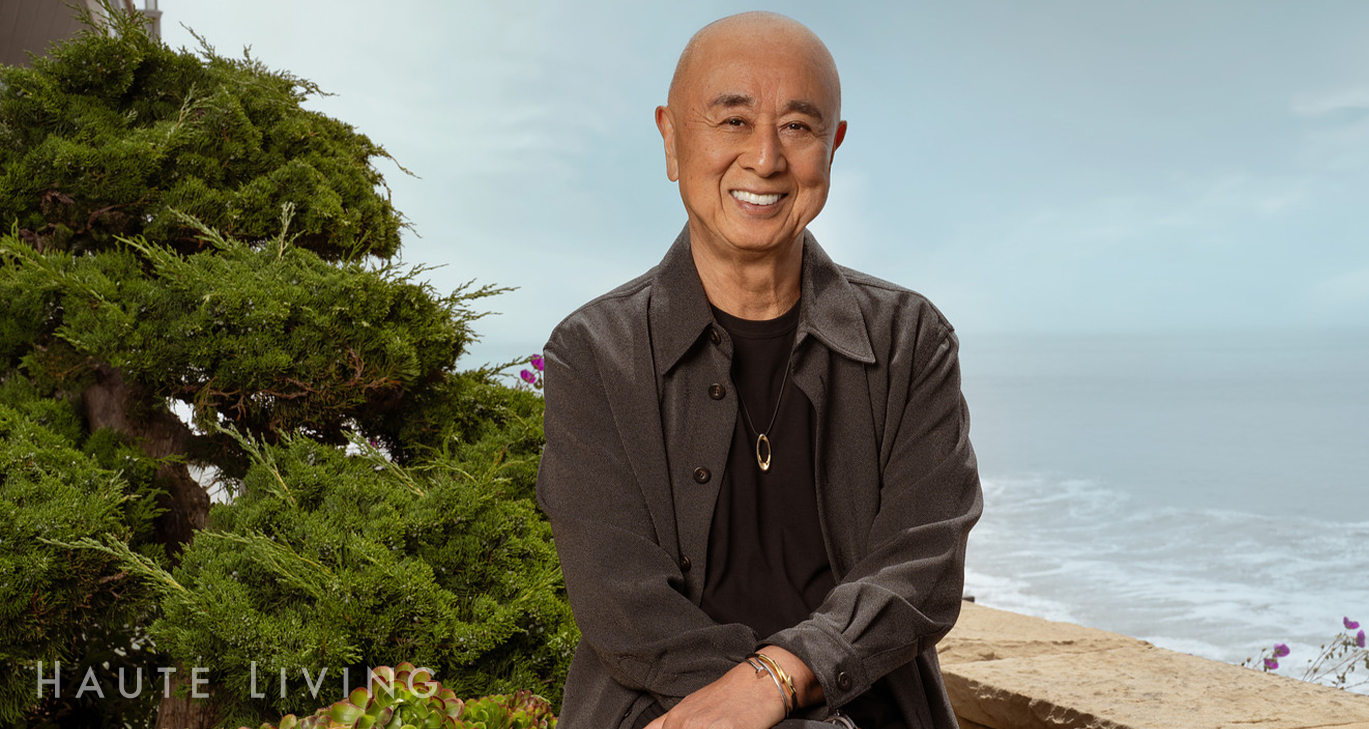
“There was a party at every location,” he says mournfully. “And I appreciate it, but I really only ever celebrate my birthday with my family; it’s more comfortable that way. I’m really shy.”
This is another surprising revelation from a man who has done so much. I have spent much time around Nobu-San throughout the years — be it at the Regent Hong Kong, which houses a beautiful new Nobu eatery, in Las Vegas, where the first Nobu Hotel can be found within Caesars Palace, in New York, where he’ll be celebrating his 30th anniversary in October, and today, here in Malibu, the top-grossing Nobu location in the world — and wherever he happens to be, he’s always calm, kind, and friendly, with an easy, guileless, radiant smile.
But he’s surprised me today with some of his revelations, and this serves as a reminder that, despite what we see on the surface, there is always something deeper hidden behind it.
The good, the bad, and the ugly of his life will soon be revealed in a documentary that had its world premiere at the Telluride Film Festival in August. The four-part series Nobu from Tinder Swindler producers AGC Studios, directed by documentarian Matt Tyrnauer of Valentino: The Last Emperor, delves into the Nobu you don’t know (ostensibly) — not just the
restaurateur, chef, businessman, and best-selling author of eight cookbooks and Nobu: A Memoir — but Nobu, the man who smiles because he is at peace, because he has owned his mistakes. It examines the man behind the empire, offering an intimate portrait of a chef who has redefined global gastronomy. The film grants unprecedented access into Nobu’s world, revealing the alchemy and precision behind his signature dishes, and the inspirations behind the innovations that revolutionized tradition-bound Japanese cuisine, all interwoven with his tumultuous personal saga. At the time of our interview, he hadn’t seen the final product yet, but even the very idea of it has prompted some questions. Namely, on his end: “Well, what’s the end goal?”
That’s the million dollar question, but what is the million dollar answer? What do the next 30 years look like for Nobu the man, and Nobu the brand? What does he hope his legacy will be?
“After 30 years, I hope I’m still alive,” he declares. “But then, I’d like to see how the team grows, just like I want to see my grandkids grow. Now, we are on five continents, with a lot of different nationalities working with us, and I’d like to see more. I’d like to continue to see happy customers, maybe more restaurants, more hotels, and maybe some different businesses. But truly, I never think about tomorrow. I never think about next year, or the next five years: I always try my best to be in this moment.”
As he’s always done. Nobu-San gestures at the space around him — an oceanfront paradise that embodies his vast culinary empire, a space inspired by traditional Shinto wood buildings with a linear block of sand-toned, board-marked concrete that opens onto a deck that is raised above the surf. Clerestories impart a glow to the ceiling. Sliding glass doors open up to the Pacific Ocean beyond, where dolphins have been frolicking for days. There are no ornaments: everything depends on the natural beauty of the materials and the simple furnishings. It is peaceful — and it is his.
“I’m so happy in this moment,” he confesses. “I came to the United States, I had no money, but I worked so hard, and I never changed my philosophy. This is life. This is my experience. People gave me the key, and I opened the door, step by step, one by one, and I don’t want to stop. But I’m not going to rush, I’m not going to take two steps at a time. I don’t want to take the escalators; I don’t want to take any elevator. My legs have taken me and will take me where I need to go. And now, I’m here, in this beautiful restaurant, with one of my many beautiful teams, and a lot of loyal customers around. I have no complaints about my life.”
That in itself is a luxury, but there are those he deems to be even greater. “The meaning of luxury for me is not about the money. It’s more about being happy and healthy, having a beautiful business, not playing games. Luxury is continuing to be passionate about what I do and having happy people around me as often as possible. Luxury is being true to myself and creating happiness for others.”
If he had one wish though, it would be to help those who have supported him so much throughout Nobu Hospitality’s 30-year tenure, and to give back in the way others have given so much to him. “I’m 75 years old now. I’d like to support people around me, the hard-working people. Their success means my success. I’m not personally looking for more success. Of course, I’d like to stay healthy, because without health, you cannot keep going. And I’d like to keep going, because there is so much more left to do.”
And on that note, I’d like to propose a toast to the past 30 years, Nobu-San — and cheers to another 30 more. Or should I say “kanpai”?
